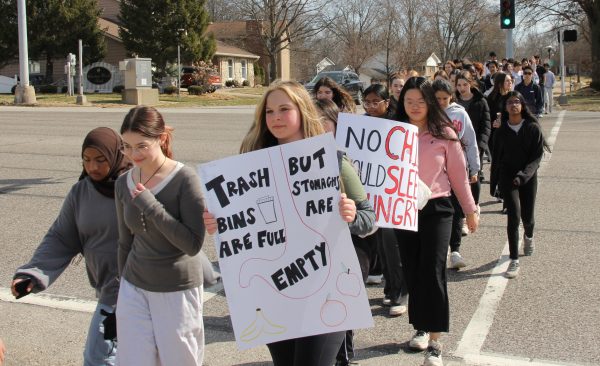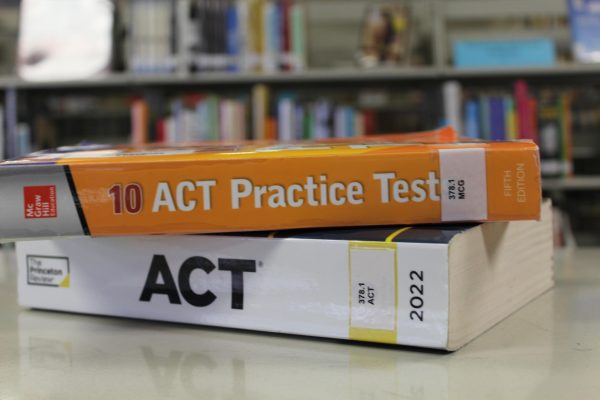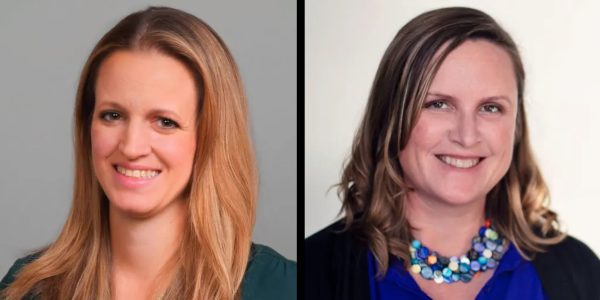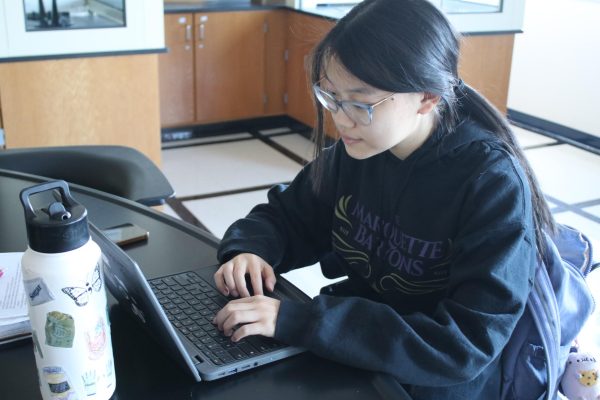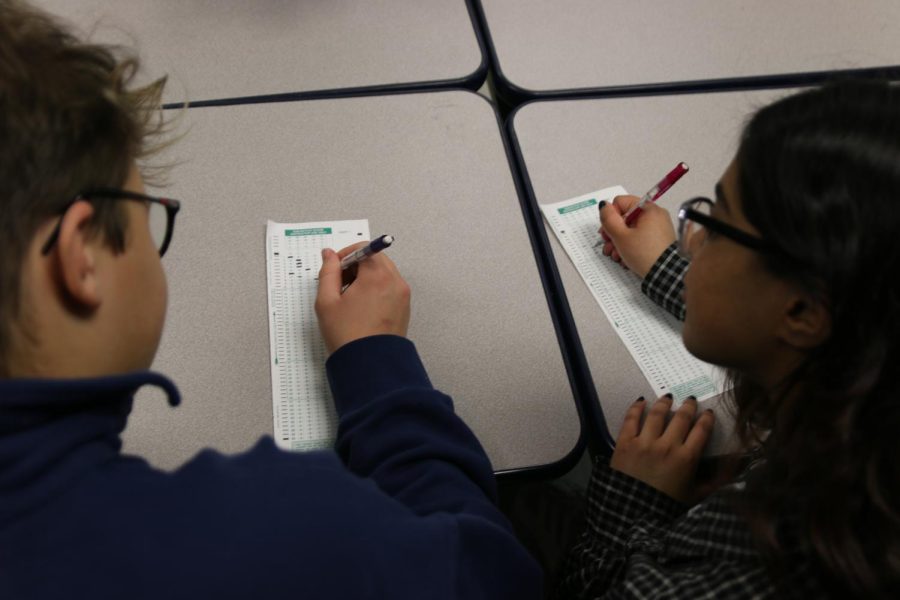RLC Re-Evaluates Academic Dishonesty Policy
Media by Parker Brandt
After the COVID-19 pandemic, academic dishonesty reached new heights, with teachers and staff reporting different methods and new technologies for cheating. With the return of in-person school, making changes to the district policy regarding academic dishonesty was reignited in Rockwood Learning Council (RLC).
After a hiatus due to the COVID-19 pandemic, Rockwood Learning Council (RLC) has resumed brainstorming changes to the district’s academic dishonesty policy.
The current policy states that the district practices zero-tolerance for academic dishonesty in any manner.
Principal Dr. Steve Hankins said the change, modeled after the tiered plagiarism policy, would designate different levels of punishment for different cheating-related offenses. For example, a plagarized piece can range from a completely copied-and-pasted paper or just a misplaced quote or citation, two very different forms of plagiarism.
“It really depends on what the infraction is,” Dr. Hankins said.
Dr. Hankins said properly educating and informing students of the district and school policies would prevent students, who would be otherwise innocent, from committing these offenses without knowing.
The concern for an increase in academic dishonesty was brought to RLC’s attention by the community pre-COVID but was put on hold after the district went virtual in the Spring of 2020. Although school has since returned to in-person, the policy was not brought back into conversation until January 2023.
Dr. Hankins said RLC has had these changes on their radar but decided to renew the policy’s discussion after the emergence of new technology being made available to students, like ChatGPT and Perplexity.ai.
“Even copying a homework assignment qualifies as academic dishonesty,” Dr. Hankins said. “Not all students recognize, or are made aware, that this constitutes as cheating.”
Shelley Willott, Assistant Superintendent of Learning & Support Services, was contacted by the Messenger for comment, but said not much progress had been made on revising the policy. She said she would have more information in April.
Gabriella Powitzky, Senior Class secretary, said that while the policy might need work, it isn’t necessarily moving in the right direction.
“As technology keeps evolving, it’s hard for teachers to expect kids to not cheat,” Powitzky said.
Powitzsky said ever since COVID-19, students have been exposed to more methods of cheating, especially due to online learning.
She said there are instances when cheating shouldn’t be punished as harshly as the current zero-tolerance policy warrants, but also that making exceptions may create loopholes for students to get through.
“I think it’s good to re-evaluate these policies and get student input,” Powitzsky said. “I honestly don’t think it will bring down the amount of cheating, though, because so many kids cheat anyway.”
Ashley Hobbs, social studies teacher, agrees that academic integrity is a progressing issue, but isn’t sure if a policy change is necessary.
“The only person who can compromise your academic integrity is yourself,” Hobbs said. “You either did the work yourself or you didn’t.”
Hobbs believes reconcentrating on the value of education would benefit students further than the implementation of new or changing policies. Applying focus on grades rather than learning only makes students more inclined to commit academic dishonesty.
“We would have less issues with academic dishonesty if we focused attention on more important things, like learning and retention, instead of achieving good grades,” Hobbs said.
Your donation will support the student journalists of Marquette High School. Your contribution will allow us to purchase equipment and cover our annual website hosting costs. You may become a PATRON by making a donation at one of these levels: White/$30, Green/$50, Blue/$100. Patron names will be published in the print newsmagazine, on the website and once per quarter on our social media accounts.
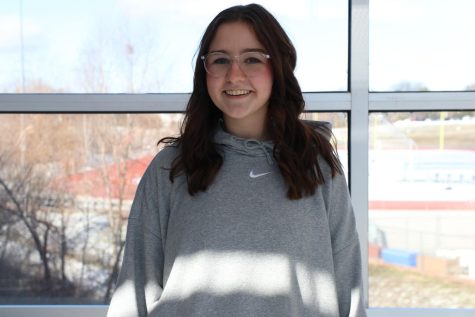
Parker Brandt, senior, is the Features editor for her second year on staff. She wants to major in journalism in college and is excited for another school...
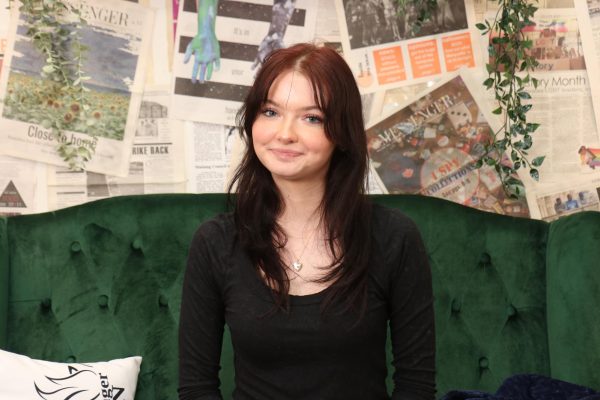
Claire Lowder, senior, is the Opinions Editor for the Messenger. This will be her second year on staff. Outside of writing, she enjoys shopping, reading,...



